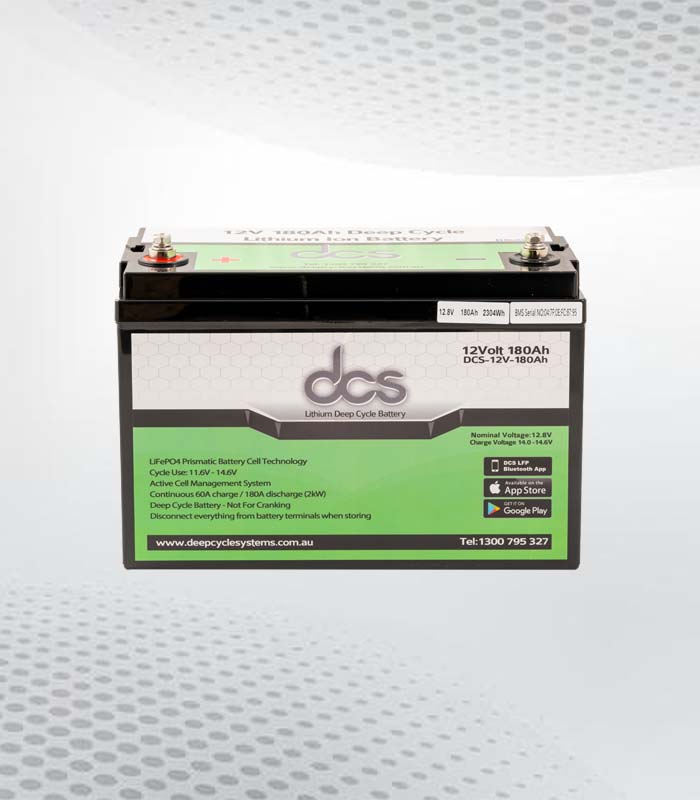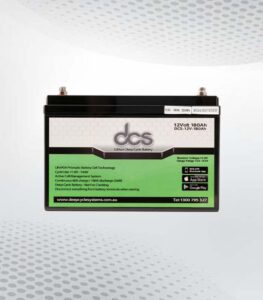Boondocking, or camping off-the-grid, has become increasingly popular among outdoor enthusiasts. But with limited access to electricity, powering essential devices such as lights, refrigerators, and electronics can be challenging. This is where lifepo4 cells come in. These advanced energy storage solutions offer a reliable and efficient power source for boondocking adventures. This blog post will explore how lithium iron phosphate batteries can revolutionize your boondocking experience and why they are the preferred choice for many avid campers.
Understanding The Power Of Lithium Iron Phosphate Battery 12v
Boondocking, the ultimate way to escape the hustle and bustle of city life and immerse yourself in nature’s beauty. But what about the essentials like lights, refrigerators, and electronics? This is where the power of lithium iron phosphate battery 12v comes into play. LiFePO4 batteries are the game-changer for boondocking enthusiasts. These advanced energy storage solutions provide a reliable and efficient power source, ensuring you can enjoy your off-the-grid adventures without interruptions.
Unlike traditional lead-acid batteries, LiFePO4 batteries are lighter, have a longer lifespan, and offer a higher depth of discharge. This means you can rely on them to power your essential devices longerperiods without worrying about running out of energy. Furthermore, LiFePO4 batteries are incredibly safe and environmentally friendly. They are non-toxic, have a lower risk of thermal runaway, and can withstand extreme temperatures, making them ideal for all outdoor conditions.
Exploring The Environmental Benefits Of Lifepo4 Bms
As outdoor enthusiasts, we need to consider the environmental impact of our activities, including boondocking. Using lithium iron phosphate (LiFePO4) battery systems for boondocking can offer numerous ecological benefits.
- One of the key environmental benefits of lifepo4 bms is their lower carbon footprint than traditional lead-acid batteries. LiFePO4 batteries have a higher energy density, meaning they can store more energy in a smaller, lighter package. This results in reduced transportation emissions and less overall waste.
- Furthermore, LiFePO4 batteries have a longer lifespan than lead-acid batteries, so they must be replaced less frequently. This reduces waste and less environmental impact associated with battery production and disposal.
- Additionally, LiFePO4 batteries are more energy-efficient and have higher charging and discharging efficiency. This means they require less energy to charge and can deliver more power for extended periods. By using less energy, we can reduce our carbon footprint and contribute to a greener environment.
- Lastly, LiFePO4 batteries are non-toxic and safer for the environment. They do not contain hazardous materials such as lead or acid, making them a cleaner and more environmentally friendly choice for boondocking.
The Key Features And Benefits Of Using Lifepo4 For Boondocking
Boondocking, or camping off-the-grid, offers a unique and liberating experience, but it also comes with challenges. One of the biggest challenges is finding a reliable and efficient power source to keep your essential devices running. This is where lithium iron phosphate (LiFePO4) batteries come in.
- LiFePO4 batteries are specifically designed to meet the demands of boondocking enthusiasts. They offer a range of critical features and benefits that can revolutionize your camping experience.
- First and foremost, LiFePO4 batteries are lightweight and compact, making them easy to transport and install in your camping setup. This means you don’t have to sacrifice precious space in your vehicle or RV for a bulky power system.
- Another critical feature of LiFePO4 batteries is their longer lifespan than traditional lead-acid batteries. This means you can rely on them to power your essential devices for extended periods without worrying about constantly replacing or recharging them.
- Additionally, LiFePO4 batteries offer a higher depth of discharge, meaning you can use more of the battery’s capacity before recharging. This gives you more flexibility and freedom to enjoy your boondocking adventures without constantly monitoring your power usage.
Tips For Installing And Maintaining Your Lifepo4 Battery System
When installing and maintaining your LiFePO4 battery system for boondocking, there are a few essential tips to remember.
- First and foremost, carefully read and follow the manufacturer’s instructions for installation. This will ensure you properly connect the battery system to your power setup and avoid potential safety hazards. If you’re uncomfortable with DIY installation, it’s always a good idea to consult a professional to ensure everything is done correctly.
- Regular maintenance is also crucial for keeping your LiFePO4 battery system in optimal condition. This includes regularly checking the battery voltage and temperature and ensuring that all connections are secure. Keeping the battery clean and free from debris or corrosion is also essential. If you notice any issues or abnormalities, it’s best to address them promptly to prevent any further damage or potential failures.
- In addition to regular maintenance, it’s essential to properly store your LiFePO4 batteries when not in use. This includes keeping them in a cool, dry place and avoiding exposure to extreme temperatures. It’s also a good idea to periodically charge and discharge the batteries to prevent any loss of capacity.
Optimizing Your Lifepo4 Battery For Cold Weather Camping
When it comes to cold weather camping, it’s essential to optimize your LiFePO4 battery system to ensure it continues performing at its best. Cold temperatures can significantly impact battery performance, so taking a few extra steps can go a long way in maximizing the efficiency and reliability of your power source.
First and foremost, insulation is critical. Keeping your LiFePO4 batteries insulated will help maintain their temperature and prevent them from getting too cold. Consider using insulation wraps or blankets designed explicitly for batteries to help regulate the temperature.
Another tip is to keep your batteries fully charged. Cold weather can decrease a battery’s capacity, so chargingem to their full potential before heading out on your camping trip. A is essentialdditionally, keeping your batteries connected to a solar panel or other charging source during the day can help offset any power loss caused by the cold.
Maximizing The Efficiency Of Your Lifepo4 Battery System
Maximizing the efficiency of your LiFePO4 battery system is crucial for getting the most out of your boondocking experience. With simple tips and tricks, you can ensure your power source is optimized and ready to meet all your energy needs.
First and foremost, it’s essential to properly size your battery system. Calculate your power requirements based on the devices you plan to power and their energy consumption. This will help you determine the capacity and number of batteries needed for your setup. Oversizing your system can lead to unnecessary weight and cost, while undersizing can result in insufficient power.
Another critical aspect of maximizing efficiency is optimizing your charging methods. LiFePO4 batteries have specific charging requirements, and using the correct charger can significantly improve their performance. Look for a charger specifically designed for LiFePO4 batteries and follow the manufacturer’s recommendations for charging parameters.
Comparing Lithium Iron Phosphate Battery Suppliers
When choosing the suitable lithium iron phosphate battery suppliers for your boondocking adventures, there are a few key factors to consider. While there are several suppliers out there, not all are created equal. Comparing different suppliers can help you make an informed decision and ensure you get the best quality and value for your money.
One crucial factor to consider is the reputation and experience of the supplier. Look for suppliers with a track record of providing high-quality LiFePO4 batteries and excellent customer service. Reading customer reviews and testimonials can give you insights into the supplier’s reliability and responsiveness.
Another important consideration is the range of products offered by the supplier. Look for a supplier that provides a variety of LiFePO4 batteries in different capacities and sizes to meet your specific needs. This will give you more flexibility and options when designing your boondocking power system.
Price is also a key factor to consider. While finding a competitive supplier is essential, be cautious of meager prices that may indicate lower quality or subpar customer service. Balancing quality and affordability is essential when comparing suppliers.
Calculating Your Power Needs For Lifepo4 Battery System
When setting up your boondocking power system with a LiFePO4 battery, it’s essential to accurately calculate your power needs. This will ensure that you have enough capacity to power all your necessary devices during your off-the-grid adventures. To calculate your power needs, start by making a list of all the devices you plan to power and their energy consumption. Check the device’s specifications or labels for information on power requirements. This may include wattage, voltage, or amperage.
Next, estimate the number of hours you will use each device daily. Multiply the device’s energy consumption (in watts) by the hours used to get the energy in watt-hours (Wh). Add up the energy requirements for all your devices to get the total daily energy consumption in watt-hours. Now, consider the number of days you will be boondocking. Multiply the daily energy consumption by the number of days to get the total energy needed for your trip.
FAQs
1. Can I use a lithium iron phosphate battery with my boondocking setup?
Lithium iron phosphate (LiFePO4) batteries are compatible with most boondocking setups. They can be used as a replacement for traditional lead-acid batteries without any significant modifications. However, it is always a good idea to check your devices’ and equipment’s specifications and requirements to ensure compatibility.
2. How long do LiFePO4 batteries last?
LiFePO4 batteries have a longer lifespan compared to traditional lead-acid batteries. On average, they can last up to 10 years or more, depending on usage and maintenance. This longer lifespan makes them cost-effective for boondocking enthusiasts who want a reliable and durable power source.
3. Are LiFePO4 batteries safe?
Yes, LiFePO4 batteries are considered safe and have a lower risk of thermal runaway than other battery chemistries. They are non-toxic, lower the risk of explosion or fire, and can withstand extreme temperatures. However, it is always important to handle and store batteries properly to minimize any potential risks.
Conclusion
As we have explored throughout this blog post, lithium iron phosphate (LiFePO4) batteries are indeed a game-changer for boondocking enthusiasts. These advanced energy storage solutions provide a reliable and efficient power source, allowing you to embrace the serenity of nature without sacrificing modern conveniences.
This Article Was First Published On:
How Lifepo4 Cells Revolutionize Boondocking Experience?

